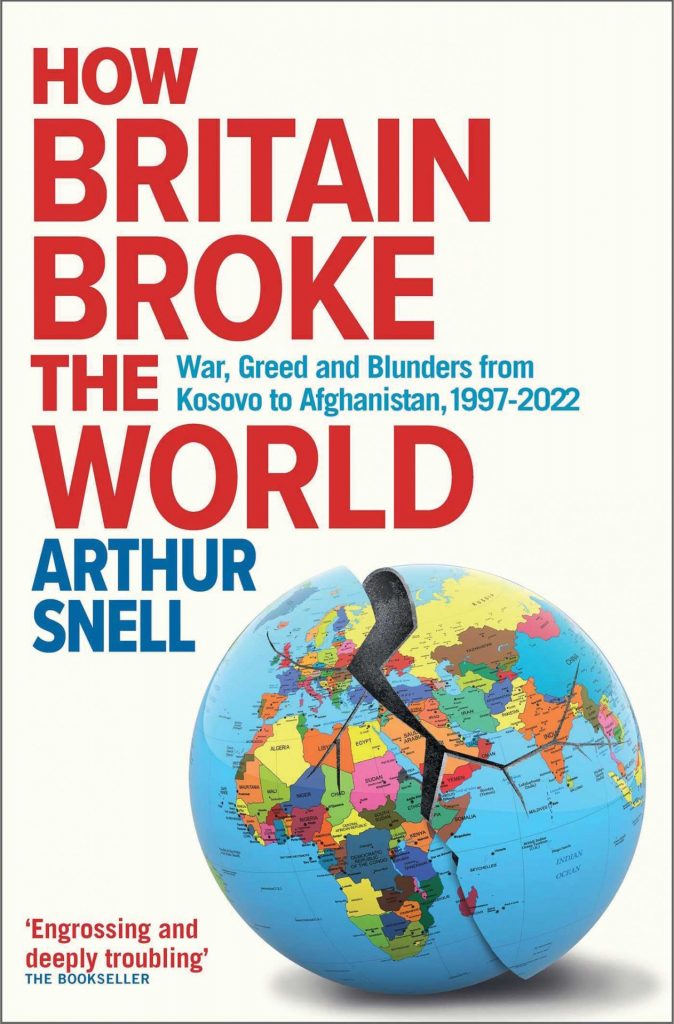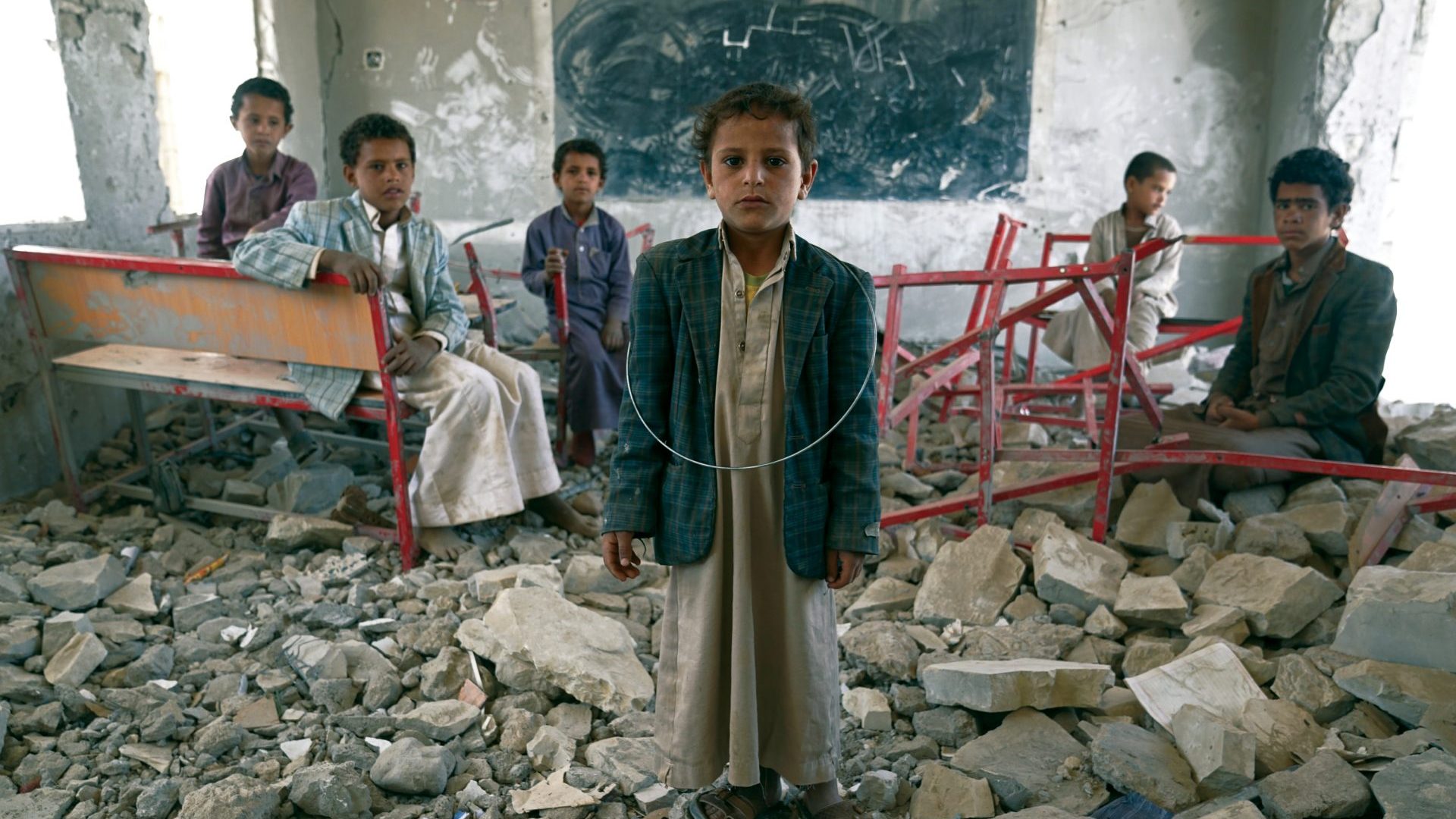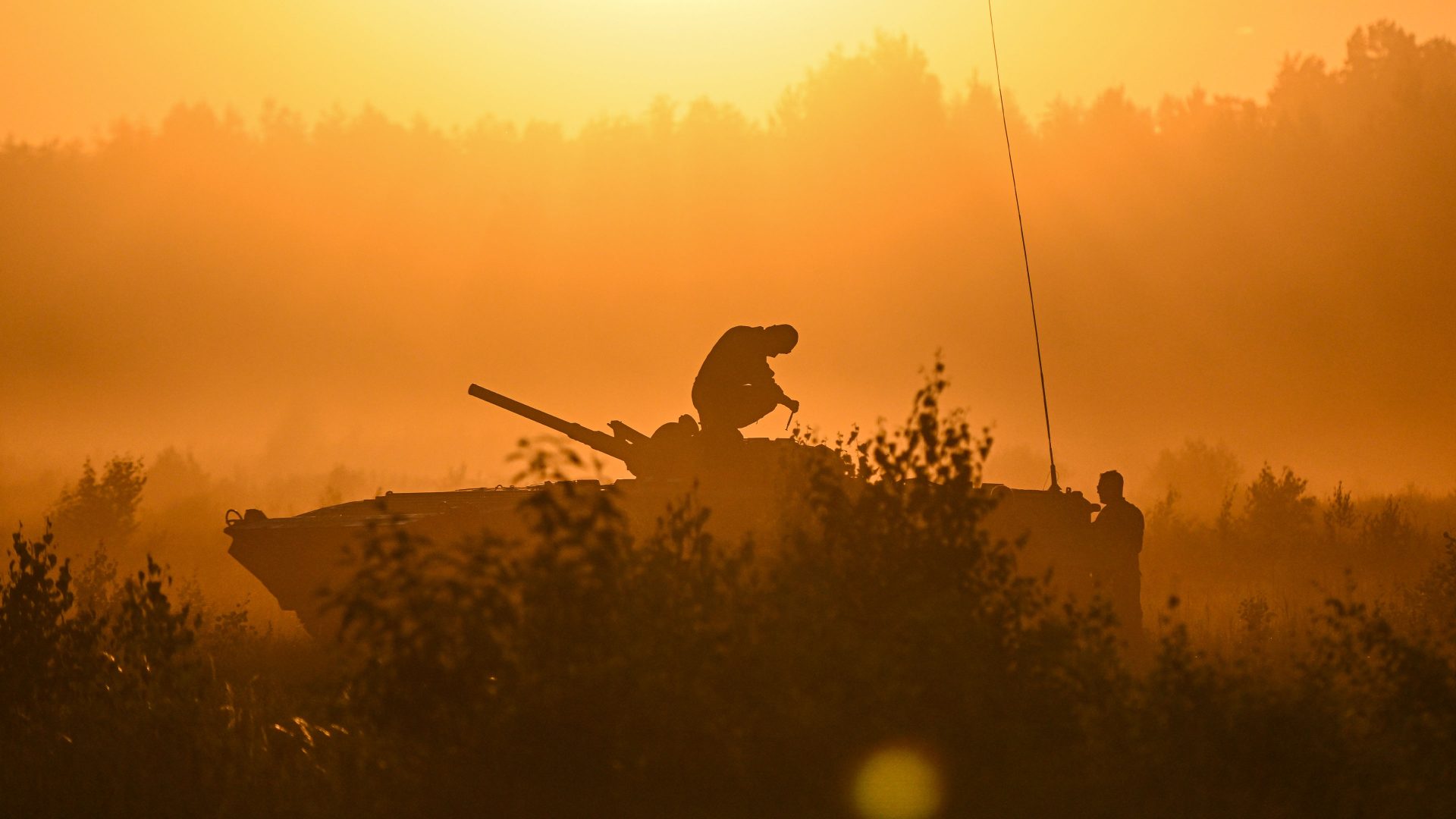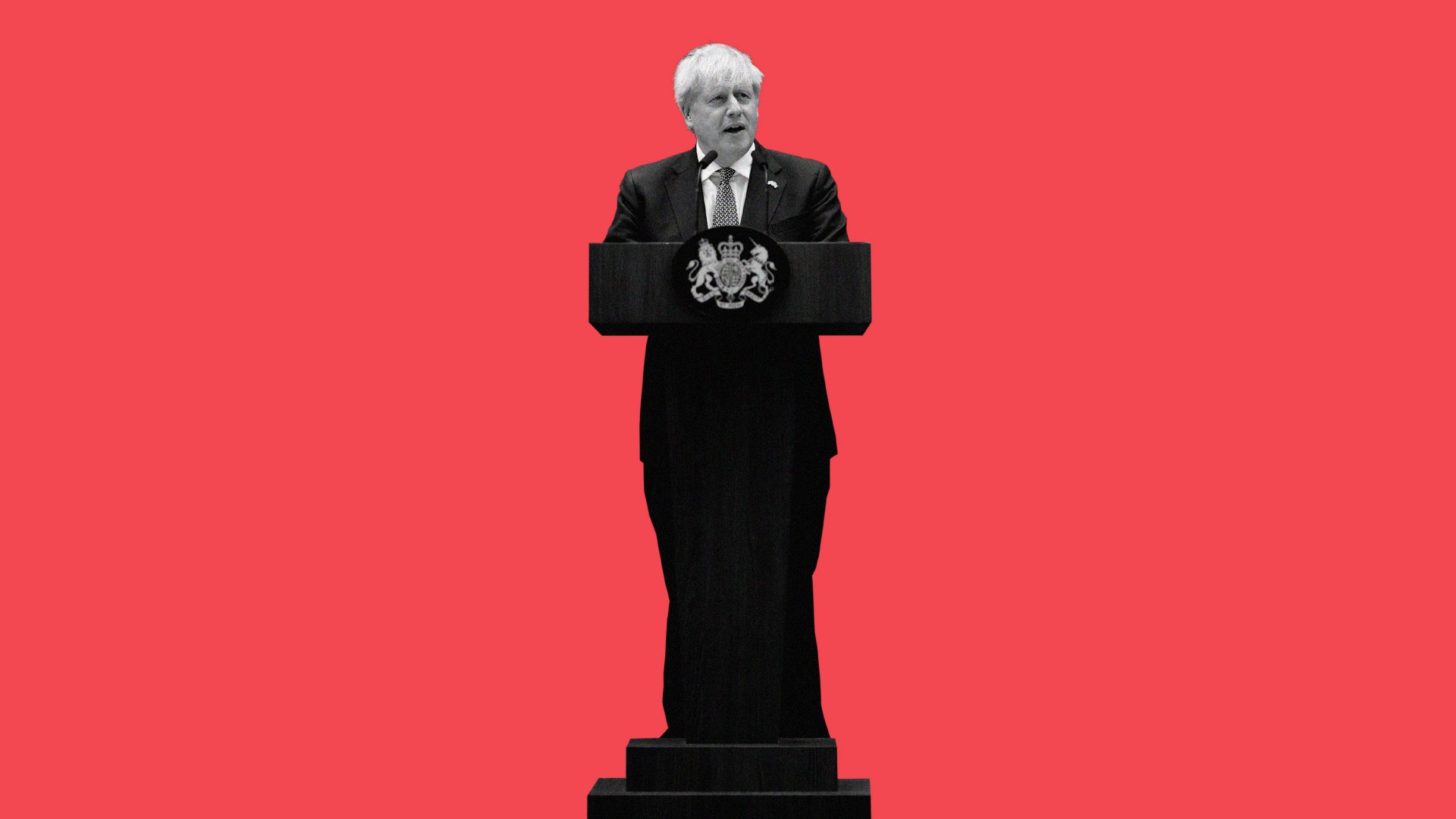Last month, the UK quietly removed “human rights” and the “rule of law” from its list of objectives in negotiating a trade deal with six Gulf states. Driven by post-Brexit trade pressures, the UK is increasingly seeking to do deals with anyone at any cost. This is a very different foreign policy to that which I witnessed in Iraq and Afghanistan, where, among other motivations, we were there to protect human rights and enforce the rule of law at the point of a gun.
From two of the UK’s worst foreign policy interventions of the last 35 years, which I saw first-hand, to last week’s quiet omissions, UK foreign policy in the countries it is focused on has regularly made people’s lives worse, or at a minimum no better. In his new book How Britain Broke the World, former diplomat Arthur Snell argues that recent foreign policy disasters have had an impact far beyond those countries. Indeed, since 1997 instead of using its considerable influence and capabilities to good effect, to promote international stability, progress and peace, the UK’s foreign policy has significantly contributed to the fracturing of the post-cold war global order. Is this a fair accusation?
Despite the title, Snell’s book isn’t a sensationalist account. It is a sober review of the UK’s interventions in Iraq, Afghanistan, Libya and Syria, and our policies towards Russia, the US, India, China, Saudi Arabia and Brexit, highlighting the geopolitical links between them all, the ideological threads that run through our policymaking and the common errors in the execution of that policy.
Snell argues that the unsteady rules-based international order finally collapsed in February 2022, when Russia invaded Ukraine. An argument can be made for it collapsing in 2003, with the coalition invasion of Iraq. The seeds of the ideology that led to both the Iraq invasion and the end of the West’s nascent warm relationship with post-cold war Russia were both sown in the late 1990s in the Balkans.
The Kosovo war (1998-1999) was fought between the forces of the Federal Republic of Yugoslavia, which controlled Kosovo, and the Kosovo Albanian rebel group the Kosovo Liberation Army (KLA), which sought independence. The conflict ended when Nato intervened through airstrikes that resulted in the mostly Serbian, Yugoslav forces withdrawing. The launching of these airstrikes was the first sustained use of armed force by Nato in its 50-year history. In Chicago in April 1999, UK prime minister Tony Blair set out his “doctrine of international community”, centred around the idea of military intervention for humanitarian reasons, and the so-called “responsibility to protect”, which included the idea that when a state was “unable or unwilling” to protect its people, responsibility shifted to the international community. Snell highlights that it was, therefore, a British idea that a UN resolution was unnecessary for humanitarian military action. The interventionist doctrine developed for Kosovo was a radical departure from agreed international norms and demonstrated to the world that the system of global rules could be jettisoned whenever convenient. This did not go unnoticed in Russia.
Kosovo deeply affected Russia. It was the moment when Russia concluded that it would not trust the West. Russia’s president, Vladimir Putin, profited domestically from the wave of angry nationalism created by the Kosovo operation. But Putin also bases his foreign policy on grudge and vengeance, while generating nostalgia for past glories. In a 2014 speech Putin recognised Kosovo’s secession from Serbia as analogous with his annexing of the Crimea.
Snell also highlights that the UK operates the world’s largest network of offshore financial institutions, ensuring that criminal money can be laundered across the world and facilitating corporate tax avoidance. This network was heavily utilised by Russian oligarchs. Britain accepted the influx of Russian money, and the following influence, which ultimately comprised the UK’s foreign policy towards Russia, blinding it to the threat the influence posed.
It was the ideology developed in the Balkans that later justified the invasions of Iraq and Afghanistan. Blair’s motivation for Kosovo was on one level humanitarian, to stop the massacres occurring in the escalating civil war, but on another it was the beginning of his foreign policy ideology. Snell argues that since 1997, Britain’s foreign policy has been guided by an underlying theme: a misplaced British belief that it has a better understanding of what is good for most people outside Britain than those people have themselves. And what is good for most of them is “liberal humanism”. According to the philosopher John Gray, this became a utopian project based on a quasi-religious faith in progress, the subjective power of reason, free markets, and the unbounded potential of technology. At its heart was the teleological notion of progress from unenlightened times to a future utopia. Despite the new forward-looking re-imagining of the nation that was the Cool Britannia of Blair’s early years, his foreign policy can be seen as a modern re-imagining of the empire’s colonial mission to civilise the uncivilised. Snell’s journey as diplomat across the Middle East and South Asia exposed to him the hubris and wishful thinking in foreign policies based on such ideology.
As we have been unaware of some of the historical drivers behind our own actions, our policies have also been marked by a lack of historical and current knowledge about the world with which we engage. The Afghans I met in Helmand saw our arrival as another phase in the ebb and flow of our presence in the region. The dust cloud of our historical baggage in a province where we had previously fought was visible to them but not to us. The shifting alliances of tribal and political leaders to meet their own changing needs frustrated our diplomats and military leaders, who couldn’t work out whose “side” they were on. When six of the country’s leading experts on Iraq went to Downing Street in 2002 seeking to warn Blair about the consequences of his actions, instead of asking about the country’s complex religious faultlines, one of the few questions the uninterested PM asked was “But he [Saddam] is evil, isn’t he?” Both Blair and US president George W Bush saw the world in binary terms; good or evil, with us or against us.
Snell takes us to Libya in 2011. Despite the failures in Iraq and the ongoing challenges in Afghanistan, when as part of the Arab spring uprising rebels openly challenged the rule of a newly rehabilitated Colonel Gaddafi, the then prime minister David Cameron was quick to advocate for airstrikes to protect the rebels from advancing government forces, convincing a reluctant President Barack Obama to agree. Ten years on, Libya is a failed state, ruled by warlords and different factions of Islamists. A parliamentary inquiry in 2016 tried to identify the reasons for the failure. A noted Libya expert expressed shock at the lack of awareness of the “history and regional complexities” of Libya. It was also acknowledged that, “with the benefit of hindsight” it proved to be wishful thinking that Libya’s rebels would exclude radical Islamists.
Snell points to a form of amateurism that has caused many errors in execution of our policies. He observes from experience that the British civil service values high-calibre generalists demonstrating corporate “compentencies”, rather than specialists with expert knowledge or experience of a certain subject. Unlike many foreign ministries in comparable countries, the Foreign Office does not recruit or promote experts to senior management roles. Ultimately, it seems it is who you are rather than what you know. The idea of “our sort of chap” pervades, to the detriment of expertise.

This amateurism accounts for another of Snell’s themes: the lack of long-term planning. The stories of our lack of post-invasion planning for Iraq and Afghanistan are well-known, and our actions from Kosovo onwards didn’t properly consider the long-term impact on our relationship with Russia, but Snell also demonstrates this same tendency in our relationships with China, potentially the most important future strategic relationship we need to consider.
In 2013 George Osborne, Cameron’s chancellor of the exchequer, spearheaded a new approach to China, moving away from criticisms of human rights abuses to focusing on trade, investment and economic opportunity. No Chinese investment was to be questioned and no Chinese policy was to be criticised. Osborne tacitly supported China’s most controversial actions, even when it took the highly provocative step of building artificial islands for military aircraft in the South China Sea. On a 2015 visit to Beijing, Osborne hailed a golden era of relations between the UK and China.
The approach to China (and Russian oligarchs) saw a major realignment of Britain’s economic relationships without considering the strategic implications. Snell notes that Brexit has proved the ultimate example. The late Cameron years marked a change from the Blair ideology of liberal interventionism (which ended in 2013 when Cameron’s bill for intervention in Syria resulted in the first British government defeat in parliament on a matter of war since 1782) to foreign policy driven by short-term economic gain.
Another example is the proposed deal with the six Gulf states, including Saudi Arabia, with which the UK already has significant ongoing arms sales. Since the start of their air campaign in Yemen, BAE has sold £15bn of arms and services to the Saudis. British-made bombs, engineers, targeters, analysts and “liaison officers” all keep the Saudi jets flying. We could ground them within a couple of weeks by withdrawing this lucrative support.
Cameron was brought down by the new ideology of Brexit, itself in at least some way driven by the migration crisis caused by the wars in Iraq, Afghanistan, Libya, Syria and Yemen. Brexit has seen the exacerbation of previous foreign policy errors, particularly not listening to expertise that does not align with the ideologically dominant view. During Brexit negotiations genuine trade experts were ignored and individuals with no experience were elevated to positions of high influence.
Brexit has also been responsible for a continued undermining of international law, by a supposed pillar of the rules-based international system. The UK defended its bending of international legal norms in Kosovo and Iraq with UN resolutions and retrospective self-justification. The intervention in Libya was justified by securing a limited UN resolution and then expanding its scope. Post-Brexit, the UK has agreed an international treaty with the EU and within a year announced its intention to break it. Britain’s proposed nationality and borders bill outlined plans for “pushbacks” of migrant boats crossing the Channel. Under international law, including the European Convention on Human Rights, such actions are illegal. After the European court of human rights ruled against UK deportation flights of asylum seekers to Rwanda, the UK government has proposed a new bill of human rights that is likely to create more situations where the UK is in breach of international treaty obligations.
By collating all the major foreign policy decisions of the last 35 years and putting them in the wider, connected, geopolitical context of the time, Snell convincingly argues that there are cultural and systemic issues within our government and civil service. Our foreign policy decisions have worsened the lives of citizens in the countries Snell lists, but what has the global impact been? Some of the UK’s actions have undermined the rules-based international order, but this has always been a western-centric idea. The impact hasn’t been widely felt in Latin America, for example. The reality is that Britain is a large economy, with a powerful military, and is disproportionally influential. Repeatedly, it hasn’t been the sole actor, nor the most significant, but it has often been the one that tipped the balance, meaning Britain has been the geopolitical player without whom certain events would not have happened.
Snell asks, what can we do better? The first step must be doing what Snell has done and dispassionately review in great detail the mistakes of recent history. At a minimum any such review can only result in adopting a much more cautious approach to future military interventions.
Another obvious step is to better fund the Foreign Office. In the mid-1980s the UK had around 3,000 diplomats around the world. By 2018 it was around 1,700. France has roughly twice as many diplomats abroad. Appointing and retaining specialists to advise on foreign policy as well as increasing our eyes and ears on the ground would make a difference, but it will also be necessary for politicians to listen to their advice, which may prove harder.
Another priority should be rebuilding our relationship with our closest neighbours. The last few years have demonstrated two emerging themes of US foreign policy. Depending on the party in power, there has been a pivot to Asia-Pacific or an increased isolationism. Neither of which will see the US valuing the “special relationship” with the UK in the same way as during the Blair era.
Instead, the UK needs to re-engage with the EU on new trade partnerships and growing military capability. This requires Britain to forget some of the extreme ideology of Brexit and have a pragmatic dialogue. Britain needs to seek out a series of deep engagements with Europe’s more capable militaries, which will make it easier for a future government to pursue a comprehensive security deal with the EU.
Snell focuses on foreign policy as done through official diplomacy. One area not discussed is what the political scientist Joseph Nye calls “soft power”. It contrasts with hard power, which sees countries forcing others to do what they want, most obviously through the threat of military action. For Nye, a country’s soft power rests on three resources: culture, political values (when it lives up to them at home and abroad), and foreign policies (when others see them as having moral authority). In Brand Finance’s Global Soft Power 2022 the UK is second behind only America. British culture, especially our writers, artists, musicians, sportsmen and scientists, gives us a disproportionate global soft power influence, creating a UK “brand recognition” globally, encouraging trade, but also giving ourselves the opportunity to promote the second of Nye’s resources, our political values – rather than undermine them like much of recent foreign policy has done. This is despite our current culture secretary’s best efforts.
Much of our soft power influence is most effective in the Commonwealth countries, many of which, despite the experience of colonialism, maintain strong connections to the UK and relate to the democratic, rights-based values at the centre of the rules-based international order. China has been investing significantly in many Commonwealth countries over the last 30 years, particularly in Africa, where they see African raw material extraction as vital for fuelling the fourth industrial revolution, and access to Africa’s markets important in keeping their economy growing. The UK can engage in a different way, as an equal partner influencing through promoting skills transfer and shared values, and helping to unlock these countries’ greatest resource, their people.
Britain can still forge an effective foreign policy and still has extraordinary assets, not least its brave diplomats and soldiers who have often endured and made the best of the consequences of the decision makers. To do so, it must find balanced, long-term strategic relationships with the EU, the US, and China, further divest from Gulf oil and invest in the future sources of human capital. Some of our greatest failures have been driven by whatever the government of the time has decided are our short-term national interests (usually meaning short-term economic gain).
We have abandoned aligning our foreign policy with our values. Ultimately, to realign our foreign policy with our values faces a profoundly important challenge: agreement as a nation as to what our values are. Instead of going out in the world claiming to have a better understanding of what is good for most people outside Britain than those people have themselves, first, we should spend the time working out what it is we think is good for the people of Britain, what sort of country we want to be. Only then can we work out what our wider place in the world should be.
Andy Owen is an author and former intelligence officer in the British Army



